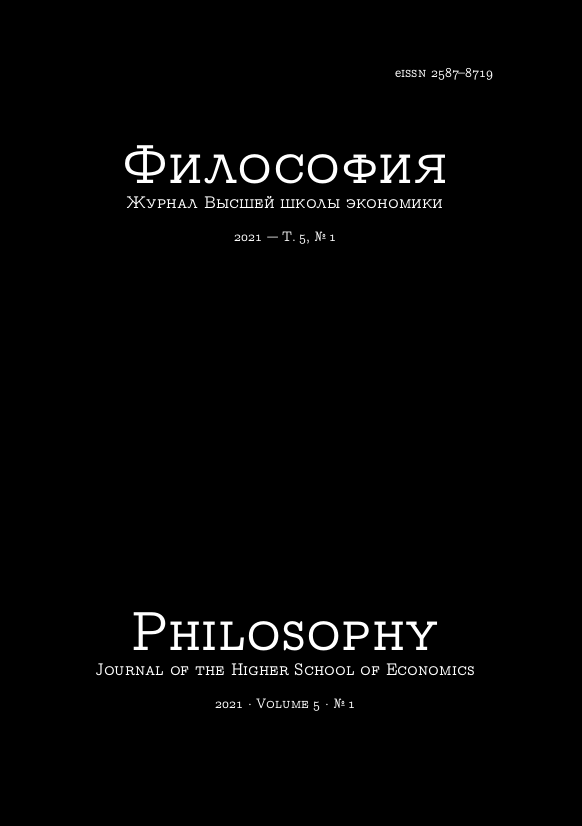The Correlation Between Ontology and Ethics in V. Bibikhin's Philosophy: Automatic Morality
Abstract
The article is devoted to clarifying the relationship between ethics and ontology in the philosophy of V. Bibikhin and based on a report made at the conference “Second Bibikhin Readings” in Bezhetsk in 2020. The very approach to the texts and ideas of V. Bibikhin can be called hermeneutic: the main thing is the effort to understand the author's thought, following it, but noting at the same time the difficulties it encounters. Based on the texts of V. Bibikhin, an attempt is made to interpret the meaning of ethical problems in his essentially ontologically oriented thought. The terms ethics and ontology are used in the meaning of specific areas of existence (ethical and ontological), revealed by philosophical thought. It was shown that the fundamental philosophical mood, thought and deed have an ontological status for V. Bibikhin, and the idea of an automaton is the basis of all the three phenomena. An automaton is understood as a self-propelled, spontaneous process of life (living matter) development, which always goes through a crisis of amechania, which fundamentally distinguishes it from artificially created automata. Automatic morality, being a manifestation of a living automaton, consists in the spontaneity of an act that does not choose that cannot be chosen and which is launched from the present, that is, an automatic thought that has an ontological, not an epistemological character. But not only a moral deed (ethics) depends on ontology (the automaton of thought, the world), but the world automaton itself requires a certain ethos from a person, the openness of its explicitness. Thus, ontology and ethics in V. Bibikhin's thought mutually condition each other.
Downloads
Copyright (c) 2021 Philosophy. Journal of the Higher School of Economics

This work is licensed under a Creative Commons Attribution-NonCommercial 4.0 International License.






